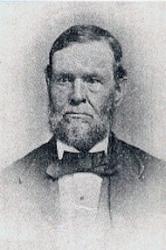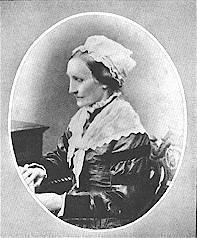
1816 - 1895 Person Name: S. D. Phelps, D. D. Hymnal Number: 105 Author of "Something for Jesus" in Inspiring Hymns Phelps, Sylvanus Dryden, D.D., was born at Suffield, Connecticut, May 15, 1816, and educated at Brown University, where he graduated in 1844. In 1846 he became pastor of the first Baptist Church, New Haven. Dr. Phelps is the Editor of The Christian Secretary, Hartford. His publications include, Eloquence of Nature, and Other Poems, 1842; Sunlight and Hearthlight, 1856; the Poet's Song, 1867, &c. He is the author of the following hymns:—
1. Christ, Who came my soul to save. Holy Baptism.
2. Did Jesus weep for me? Lent.
3. Saviour, Thy dying love. Passiontide.
4. Sons of day, arise from slumber. Home Missions.
5. This rite our blest Redeemer gave. Holy Baptism.
Of these Nos. 1 and 4 appeared in the Baptist ed. of the Plymouth Collection, 1857; Nos. 2 and 5 in the Baptist Devotional Hymn Book, 1864; and No. 3 in Gospel Hymns, 1st series, and Laudes Domini, 1884. [Rev. F. M. Bird, M.A.]
-- John Julian, Dictionary of Hymnology (1907)
====================
Phelps, Sylvanus Dryden, p. 893, ii. Additional hymns in common use by Dr. Phelps include (1) "Father, from Thy throne above" (Temperance); (2) "When over our land hung oppression's dark pall" (Temperance), both written in 1841. To J. Aldrich's Sacred Lyre, 1858, he contributed (3) "Sweet is the hour of prayer" (Prayer); (4) "Sweet Sunday-school! I love the place" (Sunday Schools); and (5) "Come friends, and let our hearts awake" (Divine Worship). There are also (6) "Once I heard a sound at my heart's dark door" (Voice of God within), in Pure Gold, with a refrain by Dr. Lowry; (7) "While on life's stormy sea" (Trust in God), written in 1862; and (8) "Come, trembling soul, be not afraid" (Confidence), "written after visiting a sick man, who, feeling his need of Christ, found it difficult to believe." Concerning his popular hymn "Saviour! Thy dying love," Burrage says it was written in 1862, and published in the Watchman and Reflector, and then, with music by Dr. R. Lowry in Pure Gold. It has been translated into Swedish and other languages. Burrage gives a revised version of the text, recently made by the author. (Burrage's Baptist Hymn Writers, 1888, p. 384.)
--John Julian, Dictionary of Hymnology, Appendix, Part II (1907)
S. Dryden Phelps







